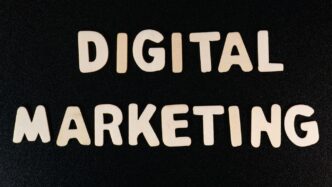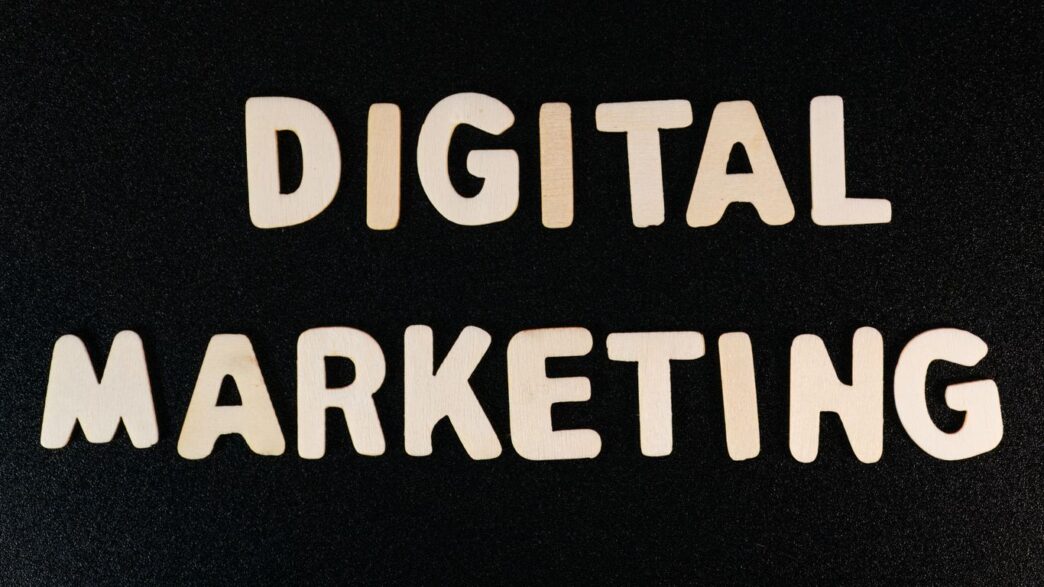Digital marketing is changing fast, and the AI Marketing Institute is right in the middle of it. If you’ve ever wondered how brands seem to know exactly what you want or how ads pop up at just the right moment, a lot of that is thanks to artificial intelligence. The AI Marketing Institute is helping marketers figure out these new tools, get hands-on with the latest tech, and learn how to use AI in real campaigns. Whether it’s making sense of data, automating boring tasks, or finding new ways to reach people, the Institute is making sure marketers aren’t left behind as the industry moves forward.
Key Takeaways
- AI Marketing Institute is helping marketers learn how to use AI in real-world situations, not just theory.
- Marketers are getting trained on the newest AI tools for tasks like data analysis, content creation, and campaign management.
- The Institute is bridging the gap between what marketers know now and what they’ll need for the future.
- AI is making it easier to personalize ads and content for different customers, leading to better results.
- While AI brings new opportunities, the Institute also teaches about challenges like ethics, privacy, and the need for new skills.
Harnessing AI Marketing Institute’s Educational Excellence

The AI Marketing Institute has made its mark by giving marketers actual skills for an industry that’s always changing. Learning how to put artificial intelligence to good use is not just helpful—it’s a must these days.
Mastering Artificial Intelligence for Marketers
Marketers are seeing real, practical results when they understand what AI can actually do, and where its limits are. The Institute offers focused programs on this, helping people get comfortable with AI in the workflow—so they’re not left behind as the field moves forward. Some key things marketers learn:
- The basics of machine learning and how it applies in real marketing situations.
- How to collaborate closely with data teams to make AI tools part of daily strategy.
- Spotting and managing issues around bias or privacy—a growing concern as AI choices affect real people.
For sales leaders, adopting AI can lead to improved revenue and more accurate forecasting, as shown in this course designed for sales leaders.
Comprehensive Training in Digital Marketing AI Tools
The Institute doesn’t just stick to vague lessons or outdated slideshows. People actually dig into the best new tools—think predictive analytics, content automation, and hyper-personalization. Here’s a quick breakdown of topics they cover:
- Using AI for smarter audience segmentation and targeting
- Automating repetitive campaign work
- Finding creative uses of generative AI for content and engagement
- Staying current on safe and ethical practices
All of this means marketers leave the program with skills that transfer straight into their jobs.
Practical Workshops and Hands-On Experience
No one really learns by just listening to lectures, do they? That’s why the Institute pushes for hands-on workshops where participants get to:
- Tinker with real data sets and AI-driven marketing apps.
- Test-drive creative AI tools for email, content, and ad planning.
- Solve challenges they’ll actually see back at work—no theoretical fluff.
Graduates often leave the Institute with a portfolio that proves their skills to employers or clients. Honestly, that can make all the difference in showing you’re ready for an industry where AI isn’t going away. For modern marketers wanting to stay relevant, these practical experiences matter just as much as the theory.
Revolutionizing Marketing Strategies Through AI Integration
AI Marketing Institute is helping marketers change how they use data, make decisions, and connect with customers. With smart algorithms and new tools, marketing is quickly becoming more automated and targeted. Below, let’s look at how AI is reshaping specific parts of digital marketing strategy.
Implementing Predictive Analytics for Better Segmentation
Marketers once had to guess which groups of people might respond to their campaigns. Today, predictive analytics uses data to highlight trends and estimate what customers might do next. This means teams can group and target audiences based on facts, not just hunches.
Here are a few steps the Institute encourages:
- Gather customer data from purchase history, web browsing, and social media.
- Use AI tools to spot patterns and predict future actions.
- Group customers not only by age or location, but also by their likely interests or behaviors.
This results in:
- More relevant messages
- Better use of marketing dollars
- Less wasted outreach
Automating Campaigns with Advanced Machine Learning
Regular marketing campaigns take a lot of time to set up and send out. Now, machine learning can automate those parts—ad creation, email sends, and even follow-up timing. Marketers at the Institute use platforms that automatically:
- Design and schedule posts based on the best time for user engagement
- Adjust ad spend in real time
- Personalize email content for each recipient
Here’s a sample comparison of time use:
| Task | With AI (hours/week) | Without AI (hours/week) |
|---|---|---|
| Email Campaign Setup | 2 | 8 |
| Ad Targeting Adjustments | 1 | 5 |
| Social Post Scheduling | 1 | 4 |
With automation, marketers spend their time on creative ideas, not just repetitive tasks.
Optimizing Ad Targeting for Higher Conversion Rates
Gone are the days of launching ads and crossing your fingers for results. AI-enhanced platforms keep adjusting who sees your ads, when, and how often. Tactics promoted by the Institute include:
- Using real-time data to update ad targeting
- Testing multiple ad versions at once
- Focusing spend on the audiences more likely to click and buy
This process creates:
- Higher conversion rates
- Faster feedback for marketers
- More cost-effective campaigns
In short, embracing AI in marketing strategies isn’t just a trend—it’s already changing the industry. The AI Marketing Institute is at the center, showing professionals how to use these new tools for smarter campaigns and better results.
Preparing Marketers for the AI-Driven Future
As artificial intelligence becomes a mainstay in marketing, professionals face big shifts. The AI Marketing Institute is working to get marketers ready for this new landscape, not only with skills, but the right mindset. Mastering AI is about more than just knowing the right tool—it’s learning how to use it well, ethically, and creatively. Here’s how:
Bridging the Organizational AI Skills Gap
Many companies want to use AI, but find their teams aren’t quite ready for these changes. The Institute helps bridge this gap with:
- Training programs focused on the real scenarios marketers face, like using AI for customer insights and campaign automation.
- Support for leaders to set guidelines and practices for AI use, so teams don’t just experiment blindly.
- Pathways for marketers to showcase new AI-driven skills, making them more valuable at work.
| Challenge | How Institute Helps |
|---|---|
| Lack of hands-on experience | Practical workshops |
| Unclear policies | Guidance on AI standards |
| Skill variability across teams | Custom learning tracks |
Fostering a Culture of Innovation and Experimentation
If you’re sticking with the strategies of yesterday, you’ll soon fall behind. The Institute pushes marketers to:
- Stay on top of AI trends—not just the buzz, but what works in the field.
- Try out new tools through sandbox sessions, where it’s okay to fail fast and learn.
- Collaborate across roles—data folks, creatives, and strategists—so everyone brings something new to the table.
This isn’t just about technology—it’s about thinking differently and acting quickly.
Developing AI Literacy and Ethical Awareness
AI can do a lot for marketing, but it comes with risks—privacy, bias, and misuse. The Institute takes this seriously by:
- Running workshops on what AI does well and where it can go wrong.
- Teaching marketers how to spot bias in data and avoid automation traps.
- Putting ethics at the core, with sessions on data privacy and responsible AI use.
To sum up:
- AI literacy means understanding what’s possible and what to be careful about.
- Ethical awareness isn’t optional—it’s built into every lesson.
- Marketers learn how to make smart, responsible choices that build trust with audiences.
As change picks up speed, the AI Marketing Institute makes sure no marketer has to face the future unprepared. Instead, they come ready—with the skills, mindset, and confidence to take on whatever comes next.
Empowering Marketers with Cutting-Edge AI Tools
AI Marketing Institute isn’t just about teaching theory—it’s where marketers get to use today’s powerful tech to solve real problems. Let’s break down how this happens.
Spotlight on Industry-Leading AI Platforms
Every digital marketer hears about AI tools like Salesforce Einstein, Adobe Sensei, and Google Marketing Platform, but it’s one thing to read about them and another to actually work with them. At the Institute, professionals get hands-on exposure to:
- Predictive analytics platforms for customer behavior forecasts
- Automation tools that manage large campaigns across different channels
- Content recommendation engines drawing from brand and consumer data
Learning through such leading tools gives marketers both confidence and a leg up on others who haven’t adapted yet.
Here’s a table summarizing how top AI platforms tackle different marketing needs:
| Platform | Main Use Case | Key Feature |
|---|---|---|
| Salesforce Einstein | CRM, lead scoring | Predictive analytics |
| Adobe Sensei | Content optimization | Pattern recognition & ML |
| Google Marketing Platform | Campaign management | Multi-channel automation |
| IBM Watson | Customer segmentation | Natural language processing |
| Amazon AI Services | Recommendation systems | Advanced data analysis |
Streamlining Content Creation and Automation
No one loves writing the same emails over and over or scheduling social media posts by hand. AI flips this on its head. Bright marketers now use AI to:
- Automatically generate copy ideas and headlines tailored to audience data
- Schedule and personalize email campaigns at massive scale
- Organize and tag content libraries for faster retrieval
This clears up hours every week for creative planning and big-picture thinking.
Advanced Data Analysis for Smarter Decisions
Modern marketing isn’t guesswork—it’s about digging through mountains of data for usable insights. With hands-on practice in the Institute, marketers learn to:
- Interpret real-time consumer data from websites and social platforms
- Run A/B tests on landing pages with automated analytics
- Pull out trends that drive next month’s best campaign
The truth? AI’s greatest strength is in sorting what matters from what just looks interesting. Marketers who learn to use these tools can move fast, test smarter, and hit their targets more often. That’s how competitive teams stay ahead—and why the AI Marketing Institute continues to be an important place for future-focused marketing professionals.
Creating Personalization and Customer Engagement at Scale
If there’s one thing that sets the modern digital landscape apart, it’s the demand for personalized experiences. Audiences expect brands to treat them like individuals, not clicks on a spreadsheet. The AI Marketing Institute is pushing the boundaries here, showing marketers how to use artificial intelligence for hyper-personalized and genuinely interactive campaigns. Let’s look at how they’re making personalization and engagement possible at scale.
Hyper-Personalization with AI-Powered Insights
Before AI, most marketing was a guessing game. Now, data and insights fuel campaigns that feel custom-built for each user. Here’s how:
- AI looks at user interactions—site visits, purchases, social media likes, or even what time someone checks their email.
- Algorithms predict what content, offers, or products will click with a specific person.
- Marketers can then send out product suggestions, emails, or ads that feel spot-on every time.
Take a look at how AI can help you segment your audience:
| Segmentation Type | Traditional Approach | AI-Driven Approach |
|---|---|---|
| Demographics | Age, gender, location | Behavioral signals, preferences |
| Purchase patterns | Manual sorting | Automated pattern detection |
| Content targeting | One-size-fits-all | Individualized recommendations |
Improving Customer Journeys Through Real-Time Analytics
Customer journeys aren’t static. People jump from phone to laptop, social media to website, and back. That’s why real-time analytics driven by AI are game changers:
- AI tracks user behavior as it happens, not after the fact.
- Marketers can adjust messaging right away—if someone’s stuck with checkout, a chatbot can offer help.
- Data points are continuously fed back and used for future decision-making.
Here’s what real-time analytics help with:
- Spotting drop-offs in the funnel as they happen.
- Adjusting offers or messages instantly to keep users engaged.
- Learning over time to make the customer journey smoother with each visit.
Utilizing Chatbots and Virtual Assistants for Engagement
It’s pretty wild how much chatbots have changed the customer service game. AI Marketing Institute introduces tools that let businesses add virtual assistants wherever their customers are—on a website, in an app, or on Instagram DMs.
- Chatbots answer questions instantly, no more waiting for a rep.
- They can guide shoppers, offer recommendations, and even handle transactions all in one chat.
- Virtual assistants remember preferences, so repeat visitors get the same personalized treatment every time.
If you’re thinking about where to use AI chatbots, start here:
- Common customer service questions (order tracking, returns)
- Product suggestions and upselling
- Gathering feedback through short, easy conversations
Personalization at scale isn’t some far-off idea—AI is making it the standard. And with the right approach, brands can finally deliver experiences that make customers feel seen and understood, not just targeted.
Opportunities and Challenges in AI Adoption

The rise of AI in marketing is opening new doors for marketers—at the same time, it’s giving them a few things to worry about. Let’s break down what stands out most when it comes to both the good and the complicated sides of bringing AI into digital marketing.
Boosting Efficiency and ROI with AI
AI tools are streamlining how marketers work, cutting out repetitive tasks and making campaigns smarter. Here’s how this is playing out right now:
- Marketers use AI for things like automating email marketing, creating social media content, and managing customer relationships.
- AI helps teams find stronger insights in their data, supporting faster decisions on what’s working and what isn’t.
- Many companies report higher returns-on-investment as technology reduces manual errors and speeds up campaign execution.
- More time gets freed up for creative strategy, because AI handles the heavy lifting with data and reporting.
Here’s a quick table summarizing the main AI benefits marketers are seeing:
| Benefit | Description |
|---|---|
| Automation | Handles repetitive tasks faster than humans |
| Personalization | Delivers content tailored to each customer |
| Time Savings | Cuts down manual work, leaving time for strategy |
| Revenue Growth | Helps marketers act on data faster, leading to more sales |
For a look at how these advantages are shaping trends, check out this AI opportunities in digital marketing page.
Navigating Ethical and Privacy Concerns
There are real risks that come with relying on AI, and marketers can’t ignore them. Here’s what people are paying attention to most:
- Data Privacy: AI systems need tons of data, and how companies collect and use this data raises questions about consumer privacy.
- Algorithm Bias: If the data used to train AI models is skewed, the AI could make unfair decisions or reinforce old stereotypes.
- Transparency: Consumers want to know when and how AI is involved in their experience. Not being clear can backfire and break trust.
- Regulation: Laws like the EU’s GDPR are forcing companies to re-examine their data practices and be more transparent.
Some simple ways to address these challenges:
- Always let customers know if content or recommendations are AI-generated.
- Regularly audit algorithms for bias, and update them if problems are found.
- Set up systems for people to ask questions or raise concerns about their data.
Addressing Talent Development in a Changing Landscape
Another concern is the skills gap. Marketers today need to get comfortable working with AI, whether that means running campaigns through AI-powered tools or analyzing complex sets of data. There’s a lot of talk about jobs changing, not necessarily vanishing:
- Many marketers don’t know how to use AI tools yet, so there’s demand for new kinds of training programs.
- Traditional marketing skills are still important, but they’re blending with new ones like data analysis and working with machine learning platforms.
- The teams that keep learning and adapting will be the ones that make the most of new technology as it arrives.
To sum it up, while AI is giving marketing teams the chance for faster growth and smarter campaigns, it’s not always smooth sailing. There’s a balancing act between making the most of AI’s promise and watching out for pitfalls like privacy or lost jobs. The future likely belongs to marketers willing to learn, adapt, and stay curious about how AI fits into their daily work.
Driving Innovation and Business Growth with AI Marketing Institute
The AI Marketing Institute is playing a big part in how businesses are moving into the next phase of digital marketing. Their approach is practical, trying out what works instead of just sticking with what’s been done before.
Unlocking New Value from Marketing Technologies
AI Marketing Institute helps companies look at technology in new ways. Instead of using tools just for the sake of it, they show teams how to spot real business gains—for example, saving time, cutting costs, or finding more promising leads.
Teams who know how to use AI technology well set themselves apart in a changing marketing world. Here are some ways the Institute helps businesses discover new value:
- Matching the right AI tools to business goals
- Reviewing which parts of the workflow are slowing things down
- Teaching marketers to use smart automation, not just manual processes
Accelerating Revenue Through Automation
Automating the dull, repeatable parts of digital marketing can free up marketers to focus on creative work. The Institute trains people to use automation for:
- Email marketing sequences
- Social media scheduling
- Responding to common customer questions
A quick look at how automation has affected some businesses:
| Task | Time Spent Before AI | Time Spent After AI |
|---|---|---|
| Ad campaign reporting | 6 hours per week | 1 hour per week |
| Content idea generation | 4 hours per week | 40 minutes |
| Lead scoring | 2 hours per week | 10 minutes |
The time saved by automation lets marketing teams try out new projects or improve customer experiences.
Leveraging Predictive Modeling for Strategic Advantage
Predictive modeling might sound complex, but the core idea is pretty simple: use data trends to guess what customers might do next. AI Marketing Institute guides marketers to:
- Set up models that score leads based on likely actions
- Update strategies regularly with fresh insights
- Spot both risks and opportunities faster than before
If you’ve been following news like commercial space travel advancements, you’ll notice that new tech isn’t just flashy—it’s about reshaping entire industries. The AI Marketing Institute is aiming for the same effect in marketing, helping everyday teams spot the next big opportunity before competitors do.
Wrapping Up: The Road Ahead for AI in Digital Marketing
So, where does all this leave us? AI Marketing Institute is making a real difference in how digital marketing works, and it’s only just getting started. Marketers now have tools that help them understand customers better, save time on repetitive stuff, and try out new ideas faster than ever. Sure, there are still some bumps in the road—like learning how to use these tools well and making sure we don’t lose the human touch. But if there’s one thing that’s clear, it’s that AI isn’t just a buzzword anymore. It’s becoming part of everyday marketing. The folks who take the time to learn and adapt are going to have a big advantage. The future of digital marketing is changing fast, and with AI in the mix, it’s going to be an interesting ride.
Frequently Asked Questions
What is the AI Marketing Institute and how does it help marketers?
The AI Marketing Institute is a place where marketers can learn how to use artificial intelligence in their work. It offers courses, workshops, and resources to help people understand how AI can make marketing easier and more effective. Marketers learn to use new tools and skills so they can keep up with changes in digital marketing.
Why is AI important in digital marketing today?
AI is important because it helps marketers do things faster and smarter. With AI, they can analyze lots of data, predict what customers want, and create personalized ads. AI also helps with tasks like writing content, managing social media, and talking to customers through chatbots.
What kind of skills can I learn at the AI Marketing Institute?
At the AI Marketing Institute, you can learn about using AI tools, understanding data, and making better marketing decisions. You’ll also get hands-on practice with real marketing problems and learn about things like predictive analytics, content automation, and how to use AI responsibly.
How does AI make marketing more personal for customers?
AI looks at what customers like and how they behave online. It uses this information to suggest products, send special offers, and even recommend music or movies. This makes each customer feel special because the marketing is made just for them.
Are there any challenges with using AI in marketing?
Yes, there are some challenges. Some people worry about privacy and how their data is used. Others are concerned that AI might replace jobs. It’s also important for marketers to learn how to use AI the right way and not rely on it too much. Learning about ethics and safe practices is a big part of using AI in marketing.
What are some examples of AI tools used in marketing?
Some popular AI tools in marketing include chatbots for customer support, platforms like Salesforce Einstein for data insights, and tools like Adobe Sensei for creating and managing ads. These tools help marketers work faster, make better decisions, and connect with customers in new ways.












